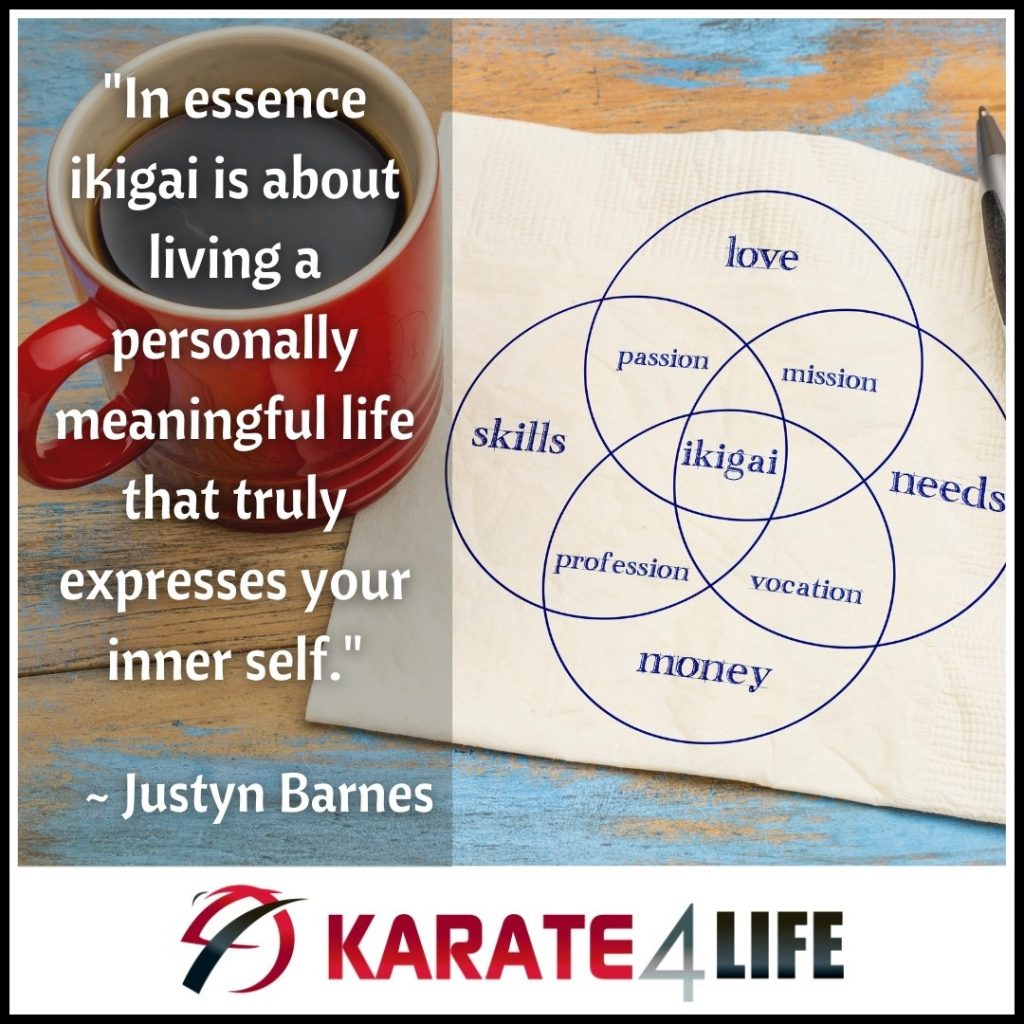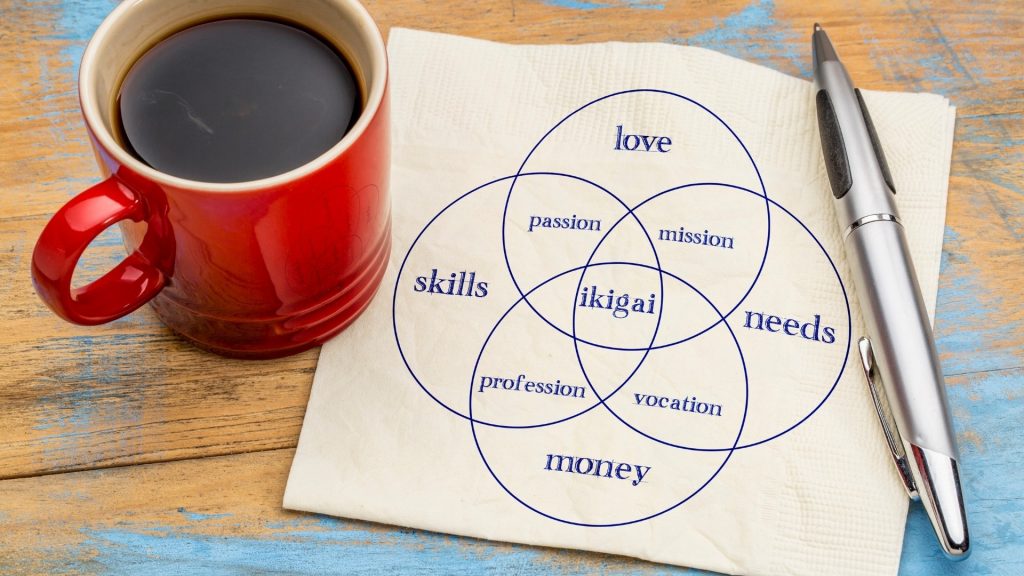10 practical Positive Psychology questions to help you discover what you love, reduce stress and add meaning to your life, the Japanese way.
While there are many interpretations of what it is, there is no direct English translation for the term ikigai, though it comes from two Japanese words together: iki (to live) and kai (value, reward, worth doing), essentially understood as, ‘to live a meaningful life.’
So how do you define what it is to lead a meaningful life?
This is a question that Japanese culture has considered since ancient times.
However, I have found that when I have asked this question in my life, I have often felt completely overwhelmed.
What meaning do the small things have, in the big picture?
So many factors to consider. I might love something sure, but does that mean it is a passion? And what if I am not even sure what my passions are? Maybe I like too many things? Maybe I don’t even know what I like at all? What if I like something, but I am not good at it? Do I have to be a master at something for it to be a passion?
How do I get to a place where everything just makes sense and I have all the answers?
The Japanese process of finding your ikigai is not really about arriving at a destination in which everything in our life is perfect and we are doing exactly what we were born to do with passion every single day. The process of self-reflection is not to arrive somewhere that we have been told to go, but rather to discover, ongoing, what a meaningful life is to us. Our own personal definition. Not from parents, or teachers, or friends, or work colleagues – just the quiet voice within. That is why this process is used in Positive Psychology interventions, as it has been shown to help give us meaning in our lives, even in the asking of the questions, not just the finding of answers.
Our ikigai is the place where what you love, what the world needs, what you can be paid for and what you are good at – meet.

“In essence ikigai is about living a personally meaningful life that truly expresses your inner self. It is about making the most of every day, rooted in the belief that finding fulfilment in many things, both large and small, is the secret to a more rewarding life, rather than extrinsic measures of success, such as wealth or social status. The sense of purpose derived from pursuing ikigai will also bolster your resilience so that you can overcome setbacks and feel positive about your future.” (Barnes, 2020)
In the field of Positive Psychology, ikigai has long been researched as connected to finding purpose, which is a core human need. Recent Positive Psychology research has shown that the Japanese process of finding one’s ikigai has a range of health and wellbeing benefits, including even reducing anxiety, lowering stress and improving resilience in adversity.
So if we know that finding purpose is a core human need and part of that is to consider our passions, what questions can we ask to help us find out what they are? And will we ever be finished with the process of finding our ikigai, or is the process of asking self-reflective questions to gauge our passions and purpose, one that is always changing and evolving?
Try journaling on these 10 prompts and consider, how would you have answered these in the past and then again, now? What similarities and differences do you notice in your own evolution?
10 Positive Psychology questions to help you find your passions in the process of finding your central ikigai;
- What were you doing when you last lost track of time?
- In the past, what has left you feeling energized?
- What did you love to do as a child?
- Where do you find beauty?
- If you could be the best at one thing, what would it be?
- What would you choose to do with your time, if you did not have to worry about making money?
- How would you spend your perfect weekend?
- Is there an activity, person or place that you never get bored of?
- What could you talk about for hours on end?
- When do you feel happiest?
When my best friend and I started an Education and Media Company 4 years ago, my answers to these questions would have been very different to what they are now. What I have learned since we started this business journey has changed not only how I see my work in the world, but how I see my role in it. I always thought that my meaning and purpose had to be so specific that I could put it in one sentence, that I had to be so clear on it that it would be, ‘my reason for getting up in the morning,’ like many describe their ikigai to be.
However, now I think that how I find meaning each day is not just from the task I am doing, but what is the story I am telling myself about what the task means? It could be a spreadsheet, a phone call, or even just an email. But what does it mean, to me?
If we look at life from the perspective of the story we are telling ourselves, any task can be part of a meaningful life. If we get to choose the meaning of the small things, then perhaps we can live a bigger ikigai life with meaning found – in all the things we do.
Reference
Barnes, J 2020, Ikigai, The Japanese secret to a life of happiness and longevity, Pier9, Murdoch Books, Australia & New Zealand.
Houston, E 2021, Positive Psychology Toolkit: Finding Your Ikigai, www.PositivePsychology.com

